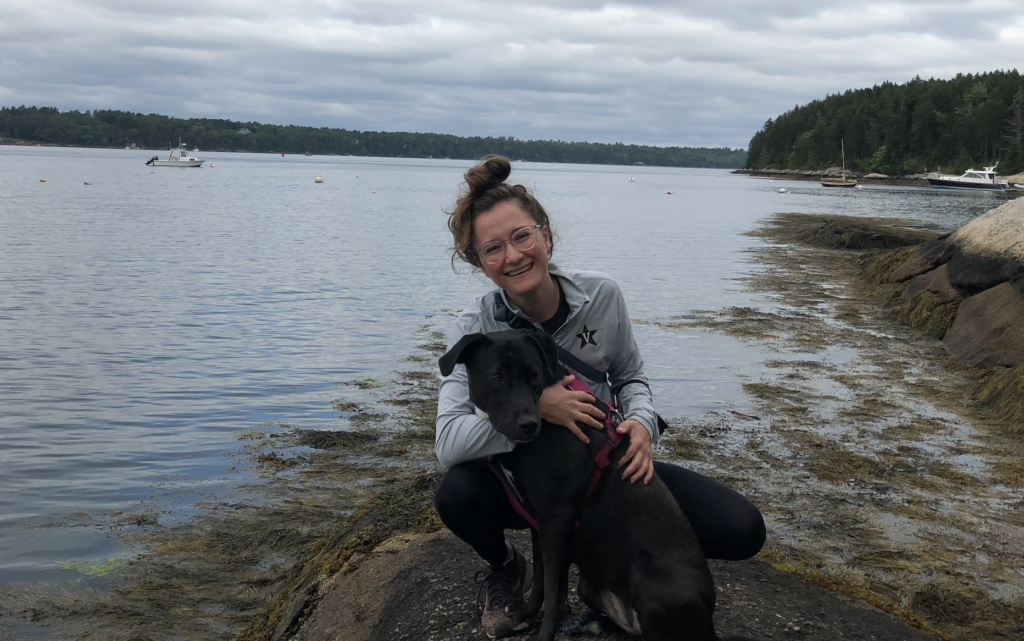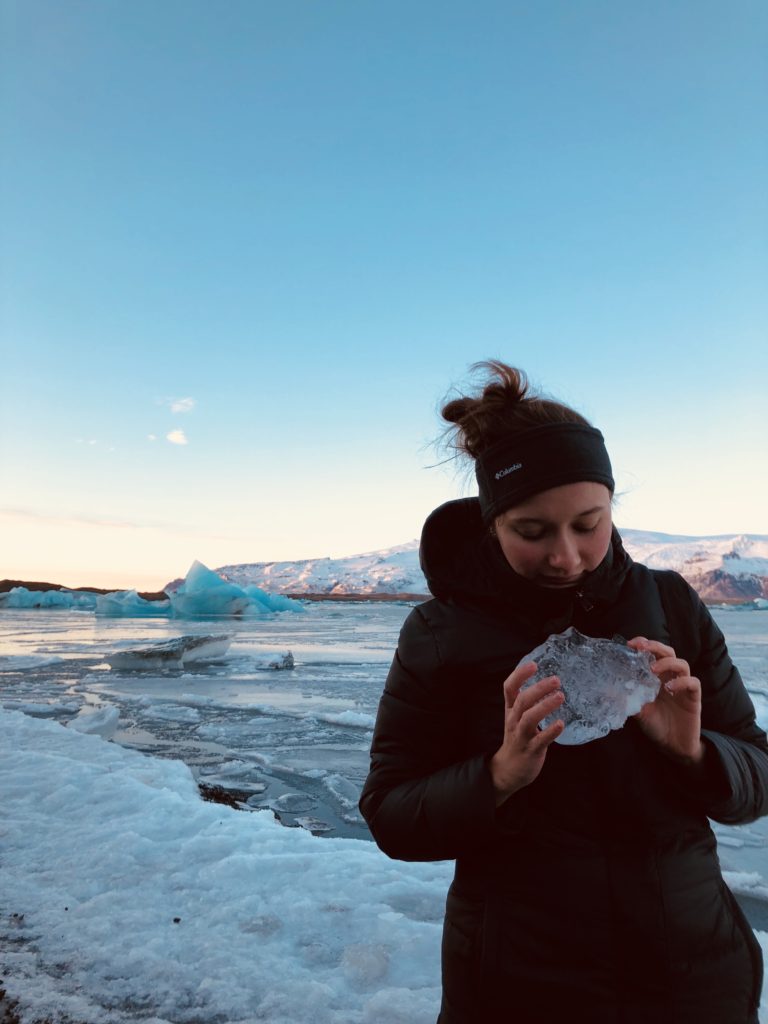Jacqueline Goodwin is the new Sustainable Workplaces Manager at Urban Green Lab. She oversees the Urban Green Lab Certification Program and the Nashville Sustainability Roundtable.
Originally from Connecticut, Jackie went to Dickinson College in Pennsylvania to pursue a degree in Environmental Studies. There, she grew her love for sustainability by living in the Center for Sustainable Living (The Treehouse) and interning at the Center for Sustainability Education. Most recently, Jackie has been a freelance writer specializing in social impact and sustainability.
An avid reader, traveler, and coffee drinker, Jackie tells us how she makes a little change go a long way.

What is your role in helping communities become more sustainable?
My goal is to organize, train, and connect workplaces in Nashville so that they can effectively turn their sustainability knowledge into actionable planet-saving behaviors. I think it’s important to bring sustainability into the workplace because environmentally friendly behaviors are often seen as a hobby. In truth, everyone has a role to play in securing our planet’s future. When workplaces model sustainable behaviors, employees take that knowledge home and embed it into their daily lives, which can be very empowering. Ingraining sustainability into the workplace also helps build community and creates a shared sense of purpose among employees.
I help these communities become more sustainable by assessing their needs, developing strategic plans to implement sustainability learning, and connecting them to resources to execute their new mission.
What’s your favorite thing about working in sustainability?
I’ve always been purpose-driven, ever since I was a kid. I love that working in sustainability connects me to a shared higher purpose to preserve and protect our planet for years to come.
Sustainability is a field that’s highly connected to just about everything. When we learn about the planet, we don’t just learn about climate change and environmental science, but the spiritual connection we can have to the earth, how nature has inspired years of literature and art, and the societal impact of our extractivist ways. Name a subject, and I’d bet that by connecting your field of study to the planet, you’ll gain a new perspective.
Was there an “ah-ha” moment when you decided to make more sustainable choices in your own life?

There have been two formative moments in my life that led me to live more consciously, although I didn’t necessarily realize it at the time.
As a kid, I loved the Yale Peabody Museum of Natural History in New Haven. I vividly remember learning about the Dodo bird for the first time and how it went extinct because of habitat loss and hunting. I couldn’t believe that there were animal species that thrived at one point in time, only to reach their demise because of humankind’s negative impact. Although I was really young, learning this helped spur my passion for conservation.
Then, around 2007, in the checkout line of my hometown’s grocery store, I saw a special edition of TIME magazine on global warming. I took it home and learned about how climate change affected our planet and how people were coming up with innovative solutions to save it. It inspired me to imagine my own sustainability bubble where everything ran off of renewable energy, building design with LEED certification was the standard, and wild landscapes surrounded my ever-resilient eco-village. I decided to attend college for environmental studies, and from there, I fully immersed myself in sustainable living. I feel we have to reverse the damage we’ve done to the environment and move towards a more secure future for people and the planet.
What was or has been the hardest habit to break along your sustainability journey?
I’ve learned a lot about plastic pollution in the last year, and I have to say, it’s extremely difficult to avoid. While I’ve cut it significantly by being mindful about buying plastic-free personal care products and using Terracycle for everything else, plastic is everywhere. My wifi router is made of plastic. My glasses are plastic. My blinds are plastic. My dog’s flea and tick medicine will only ever be packaged in unrecyclable plastic. Certain things are desperately needed and made of plastic, but I have learned innovative ways to reduce and reuse these products before trying to recycle or landfill them. I’m currently working on my grocery store-related plastic, and I’ve definitely reduced it by participating in a local community supported agriculture program. Still, I have a long way to go.
What’s one sustainable item you always have with you?
For the last few months, I’ve been doing a “No New Clothes” challenge, so I usually wear something thrifted, which is much more sustainable than buying new clothes. Beyond that, I usually have my Stojo cup. It’s a reusable, collapsible cup with a straw that I can bring around town for coffee, smoothies, or anything!
To learn more about making your workplace more sustainable, contact Jacqueline at jacqueline@urbangreenlab.org.